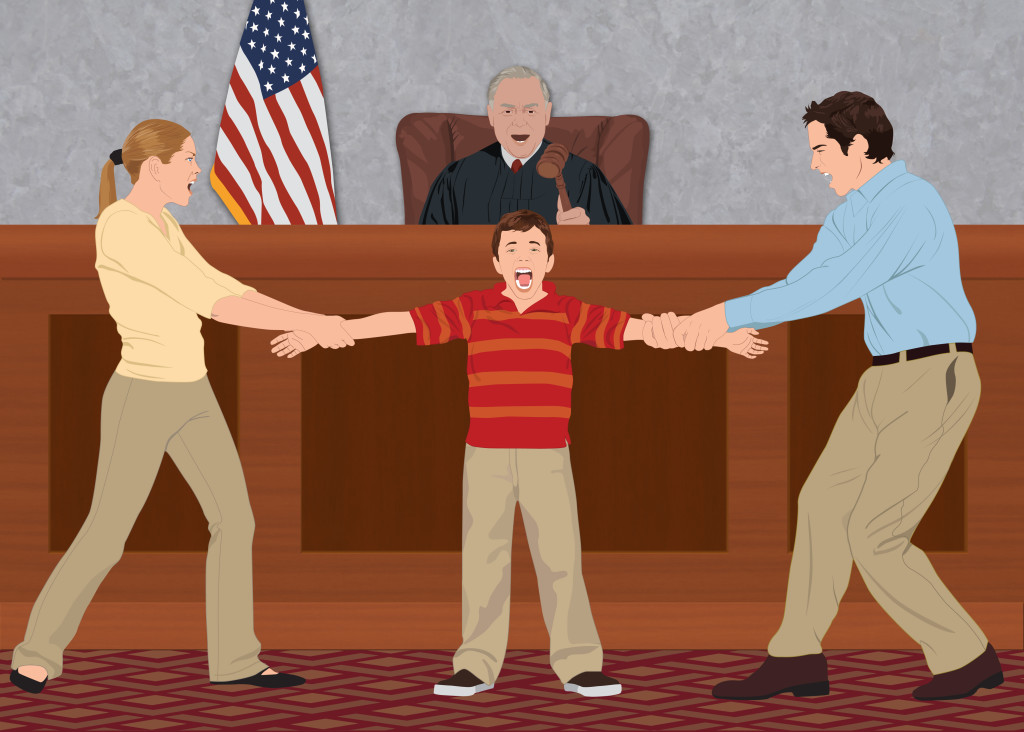
This post is the third of a three-part series detailing the child custody factors in Louisiana. This looks at factors #9-#12. Click here for part one , and here for part two of the series on child custody.
The most important question arising from divorce is, “Who gets the kids?” It is possible that the court will award shared custody, joint custody, or sole custody. In Louisiana, like many other states, the determination of child custody is based upon the court’s analysis of several factors indicating the best interest of the child. These factors are outlined in Louisiana Civil Code Article 134.
LA CIVIL CODE ART 134 – Factors in determining the child’s best interest
The court shall consider all relevant factors in determining the best interest of the child. Such factors may include:
(1) The love, affection, and other emotional ties between each party and the child.
(2) The capacity and disposition of each party to give the child love, affection, and spiritual guidance and to continue the education and rearing of the child.
(3) The capacity and disposition of each party to provide the child with food, clothing, medical care, and other material needs.
(4) The length of time the child has lived in a stable, adequate environment, and the desirability of maintaining continuity of that environment.
(5) The permanence, as a family unit, of the existing or proposed custodial home or homes.
(6) The moral fitness of each party, insofar as it affects the welfare of the child.
(7) The mental and physical health of each party.
(8) The home, school, and community history of the child.
(9) The reasonable preference of the child, if the court deems the child to be of sufficient age to express a preference.
(10) The willingness and ability of each party to facilitate and encourage a close and continuing relationship between the child and the other party.
(11) The distance between the respective residences of the parties.
(12) The responsibility for the care and rearing of the child previously exercised by each party.
#9 – The reasonable preference of the child, if the court deems the child to be of sufficient age to express a preference.
We have a family court judge in Calcasieu Parish who explains this factor better than I can on my own. He says, “We don’t let children choose where they want to live, because if we did, they would all live in Disney World.” Preference of a child as to which parent is awarded child custody will only be taken into consideration when the child is old enough to make a reasonable decision. Louisiana courts have held that great weight should be given to a responsible mature teenager’s preference as to custody. But the child must be able to articulate his preference sufficiently as courts have also held that “friends, church, and extracurricular activities” are not enough to justify a change in custody.
#10 – The willingness and ability of each party to facilitate and encourage a close and continuing relationship between the child and the other party.
Each parent is tasked with the responsibility of encouraging and fostering the child’s relationship with the other parent. This can be difficult when one parent has extreme negative feelings toward the other, but child custody isn’t about you as a parent, it’s about what’s best for the children. Louisiana courts are not going to be quick to award child custody to a parent who speaks ill of the other to the children, and courts have even given negative weight to a mother who was making threats to the father’s new girlfriend. Additional consideration has been given in child custody cases where a parent refused to facilitate travel arrangements to the other’s location for visitation, or refused to allow the children to speak on the phone with the other parent.
#11 – The distance between the respective residences of the parties.
This factor is most often looked at when courts are considering a shared child custody arrangement. Although shared child custody is many times the best for the kids and for the parents, it is not always practical. In cases where one parent moves away from the marital home in order to start over, the court is unlikely to award shared custody. While children are in school, it is in their best interest that they have a stable environment and are not traveling great distances every day.
#12 – The responsibility for the care and rearing of the child previously exercised by each party.
When determining child custody, courts give weight to whether one parent has been the primary caregiver to the children prior to the request for a custody and visitation order. The judge will take into consideration if one parent has been responsible for obtaining the child’s medical and dental treatment, and daily activities like – feeding her, bathing her, dressing her, putting her to bed, dropping and picking up from daycare. If one parent has been the primary caregiver for an extended time, the court is likely to question whether the other parent can suddenly step up to those tasks.
It is important to note that this list is not exclusive, but rather provide guidelines for the court. When determining child custody, courts may look at factors which are not included in article 134. Each case and each person is unique. A qualified Louisiana Family Law Attorney can help you to figure out how these factors and others may be applied to your specific case and how this will affect your chances of being awarded child custody.
Written By: Sean Corcoran – Lake Charles, Louisiana Family Law Attorney
